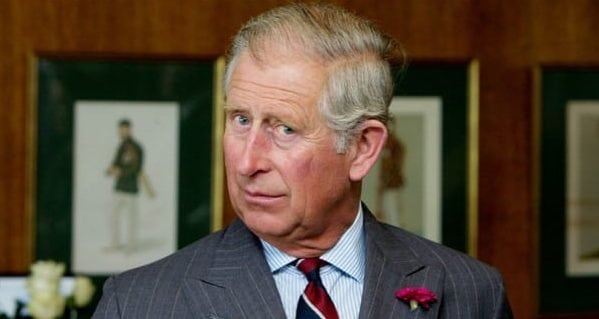 The recent marriage of Prince Harry to an American divorcée and the declining vigour of our sovereign majesty Elizabeth II, by the Grace of God Queen of this Realm and of Her Other Realms and Territories, Head of the Commonwealth, Defender of the Faith, has led some to wonder whether our ancient monarchy (in business for the last 1,200 years) has much life left in it.
The recent marriage of Prince Harry to an American divorcée and the declining vigour of our sovereign majesty Elizabeth II, by the Grace of God Queen of this Realm and of Her Other Realms and Territories, Head of the Commonwealth, Defender of the Faith, has led some to wonder whether our ancient monarchy (in business for the last 1,200 years) has much life left in it.
The prospect of Charles, Prince of Wales, soon succeeding to the throne has accelerated the debate.
Charles, to say the least, is not the much-loved figure that his mother is. He lacks both her tact and gravitas; his personal life, unlike his mother’s and grandfather’s, has not been beyond reproach.
He is, to put no fine point on it, an unrepentant adulterer, a neglectful husband and a bit of a space cadet when it comes to his support of homeopathy and his habit of talking to plant life.
His desire to be known as “Defender of the Faiths” instead of “Defender of the Faith” suggests that he’s unaware of the importance of the Church of England in the history and life of his realm, and that perhaps he’s not the devoted Christian that the Queen is.
To be fair, Charles is extremely hard-working in his royal duties and is less likely than his father, Prince Philip, to make inappropriate racial remarks. But I still haven’t forgiven him for making a lewd comment about my wife’s breasts (true story).
But the virtues of a constitutional monarchy are, to a great extent, not dependent on the character of the monarch. The institution has survived fools like George IV, lechers like Edward VII and narcissists like Edward VIII, and will still be valuable to Canada even if my darkest fears about the present heir are realized.
Having a king on the throne in London, and his vice-regal deputies in Ottawa and the provincial capitals, allows our country to have both a head of state – lofty, impartial, symbolizing continuity – and a head of government – temporary, political and partisan.
The monarch or his governor-general or lieutenant-general represents the finest attributes of the nation and is above the controversies of the moment while prime ministers come and go, along with shifting voter preferences.
We can see the difficulties that combining the two offices into one man or woman brings when we look at the United States, where President Donald Trump is due respect as embodying the nation at the same time is liable to harsh criticism as a elected politician.
A monarchy with centuries of tradition and pomp ties Canada not only to the past (always a good thing in such an ephemeral world), but also to the Commonwealth and its diverse people.
Canada has been blessed with some splendid vice-regal officials, such as John Buchan, Lord Tweedsmuir and the epitome of dignity, Georges Vanier, our first governor-general from the province of Quebec. They have founded the Vanier Institute of the Family, the King’s Jubilee Cancer Fund, the Royal Society of Canada and the nations’ first association to fight against tuberculosis, as well as donating the Stanley Cup, the Vanier Cup and the Grey Cup.
No one had high expectations of stuttering Prince Bertie when he unexpectedly became King George VI, but he led Britain bravely through the Second World War. Assuming the office of governor-general has turned lightweight media types like Adrienne Clarkson or surplus politicians like Roméo LeBlanc into figures of substance.
Let us hope that this magic will be worked on the current, rather unimpressive, vice-regent and our unpromising heir to the throne, Charles.
Gerry Bowler is a historian and senior fellow at the Frontier Centre for Public Policy. He knows all the verses to God Save the Queen, including that bit about “Confound their politics/ Frustrate their knavish tricks.”
The views, opinions and positions expressed by columnists and contributors are the author’s alone. They do not inherently or expressly reflect the views, opinions and/or positions of our publication.


